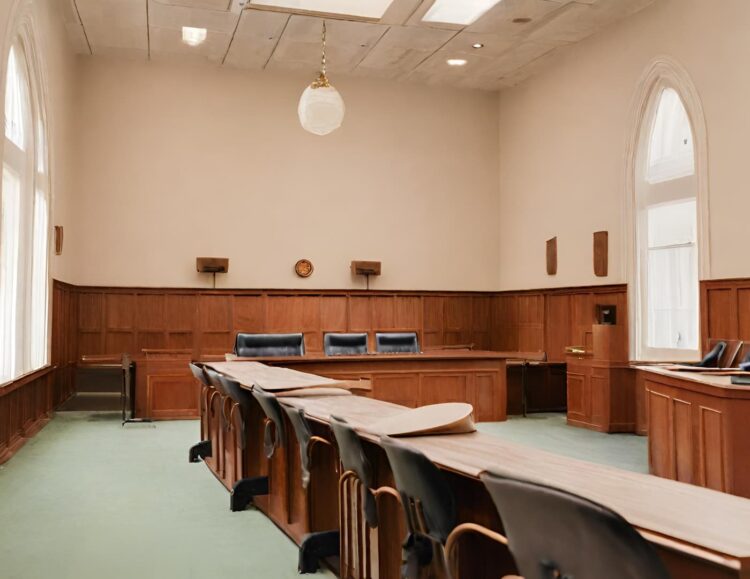Probate conservator attorney is essential advocate, guiding individuals unable to make decisions through complex legal terrain. They play a pivotal role in providing legal testimonies in court, safeguarding their clients’ interests. This exploration delves into their vital role in legal testimonies, shedding light on their responsibilities, preparation, and ethical considerations
Understanding Conservatorships
Before we dive into the role of conservator attorneys, let’s establish what conservatorships entail. Conservatorships are legal arrangements designed to protect and support individuals who lack the capacity to make crucial decisions regarding their personal well-being or financial affairs. These arrangements come in various forms, encompassing conservatorships of the person and conservatorships of the estate.
The Role of Conservator Attorneys
At the heart of the conservatorship process stands the conservator attorney, a dedicated legal professional entrusted with the responsibility of advocating for the best interests of their clients, known as conservatees. Conservator attorneys shoulder a multitude of duties and ethical obligations to ensure their clients’ rights and welfare remain paramount throughout the proceedings.
Legal Testimonies in Conservatorship Cases
One significant facet of a conservator attorney’s role is the provision of legal testimonies in court. But what does it mean to testify in court? Simply put, it involves presenting evidence, sharing expert opinions, and offering valuable insights to assist the court in making informed decisions. In conservatorship cases, this testimony can be a critical factor in determining the course of action taken.
Preparing for Legal Testimonies
Testifying in court is no small feat, and conservator attorneys undertake rigorous preparations to equip their clients for this essential part of the legal process. This preparation involves comprehensive review and discussion, ensuring that conservatees are well-informed about what to expect, from the questions they may face to the key points they need to convey.
Providing Expert Opinions
In some instances, conservator attorneys also serve as expert witnesses in conservatorship cases. This role allows them to lend their professional expertise to the court. Their insights can be instrumental in shedding light on complex matters, such as the conservatee’s capacity to make decisions or the appropriateness of the conservatorship itself.
Presenting Evidence and Cross-Examination
When it comes time to testify, conservator attorneys play a pivotal role in presenting evidence that supports their clients’ best interests. This evidence can take various forms, from medical records to financial documents. However, it’s essential to be prepared for cross-examination, as opposing parties may challenge the testimony presented. Conservator attorneys must adeptly navigate these challenges while upholding their client’s rights and well-being.
Ethical Considerations
Throughout the legal testimony process, conservator attorneys must navigate a complex landscape of ethical considerations. Their primary duty is to act in the best interests of the conservatee, even when faced with challenging legal decisions. This ethical responsibility underpins every action they take and every testimony they provide.
The Impact of Conservator Attorneys
The testimony and expertise of conservator attorneys can significantly influence court decisions in conservatorship cases. These attorneys advocate tirelessly for their clients, aiming to ensure that the court’s actions align with the conservatee’s best interests. The impact of their efforts can be seen in cases where conservator attorneys played a pivotal role in achieving positive outcomes.
Collaboration with Other Professionals
Conservator attorneys often work in tandem with a range of professionals, such as healthcare providers, social workers, and financial experts. This multidisciplinary approach ensures a comprehensive understanding of the conservatee’s circumstances and needs. By collaborating with these experts, conservator attorneys can build a compelling case that serves the conservatee’s best interests.
Challenges and Advocacy
In the realm of conservatorship, challenges are inevitable. Conservator attorneys may face disputes, opposition, and legal complexities. Yet, their unwavering dedication to advocacy means they persist in protecting the rights and well-being of vulnerable individuals. It’s a role that requires not only legal expertise but also compassion and commitment.
Conclusion
Probate conservator attorney occupy a vital role in legal testimonies within conservatorship cases. They serve as dedicated advocates, safeguarding the best interests of conservatees who may lack the capacity to make decisions independently. Providing legal testimonies in court is just one facet of their multifaceted role, but it’s an essential one. What does it mean to testify in court as a conservator attorney? It means assuming the responsibility of presenting evidence, offering expert opinions, and advocating tirelessly for their clients.
Throughout this process, conservator attorneys navigate ethical considerations, collaborate with a diverse range of professionals, and overcome challenges to ensure that their clients’ rights and well-being remain paramount. The impact of their efforts can be profound, shaping the outcomes of conservatorship cases and, more importantly, improving the lives of those they represent. In the intricate tapestry of conservatorship, conservator attorneys emerge as beacons of advocacy and guardians of justice.
